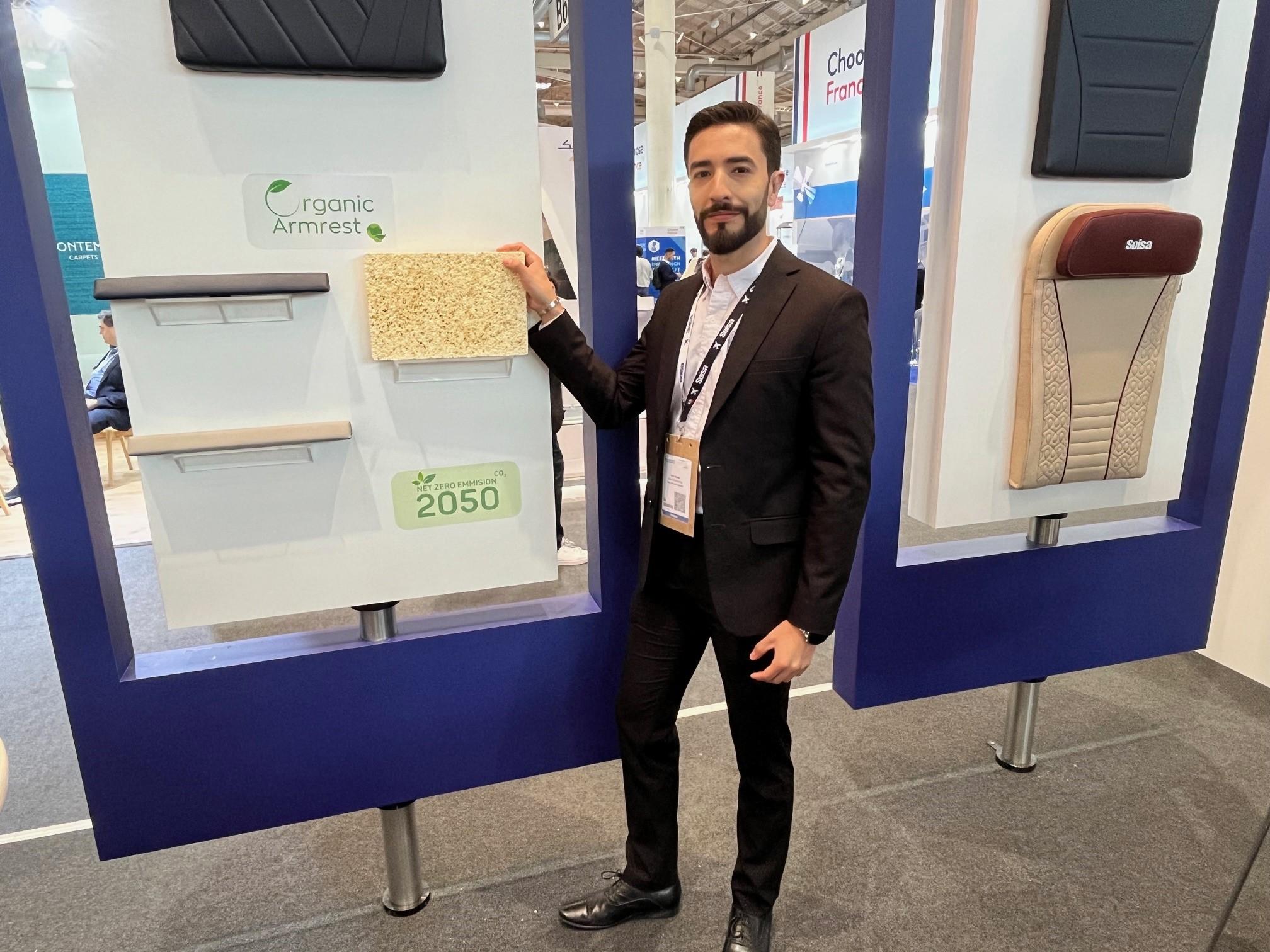
HAMBURG—Mexican seating specialist Soisa Aircraft Interiors is experimenting with using pecan shells as the base material for a variety of cabin components.
The Chihuahua region in northern Mexico, where Soisa is based, is a copious producer of pecans and the shells are normally burned to generate power or ground down to add to cement. The seat components supplier figures if pecan shells can find another use as raw material for cabin components, that is a useful “win” for sustainability.
“It’s a very interesting product, because it’s very hard,” Soisa sales director Jacobo Mesta said. “What we’re trying to do is create laminate parts that are very thin and very hard that you can substitute for some plastics, such as seatback tray tables and other small parts.”
Work is still needed to bring this pecan shell product to market.
However, another material that is also normally thrown away—waste corn scraps—is closer to being used in Soisa’s production of seat components. Waste corn scraps are “not edible, even as animal feed,” Mesta said, and the company is unveiling the potential component to airlines and seat manufacturers at the Aircraft Interiors Expo (AIX) in Hamburg.
The waste corn is processed, then compressed, to the point where it can replace some of the foam used in armrests. This corn-based material can be cut and is hardwearing, Mesta said. Soisa makes around 5,200 armrests a year that normally require around 2,000 ft.2 of polyethylene. Substituting the corn-based material for this plastic would save around 3,000 kg of CO2 emissions, as well as eliminating plastic waste that would otherwise go to landfill.
Soisa intends to start the certification process for the corn-based material immediately after AIX and, if successful, believes it could be incorporated into other cabin components.
However, the company’s main mission at AIX is promoting its new dress cover service for airline seats. Soisa already supplies major seat manufacturers such as Recaro, Collins and Safran, as well as dealing with some airlines directly.
The company now plans to expand that service by taking responsibility from the seat OEMs for providing the seat dress covers. “The dress cover is the last thing they put on before delivery [of the seat] and they are often late in arriving,” Mesta said. And, despite the cover accounting for less than 3% of the total cost of the seat, supply problems often pose a headache for the seat manufacturers, Mesta said.
Soisa is proposing to deliver the dress covers—it produces them in fabric, leather or synthetic leather—and guarantee delivery times, allowing the seat manufacturers to focus on other aspects of their assembly line.





